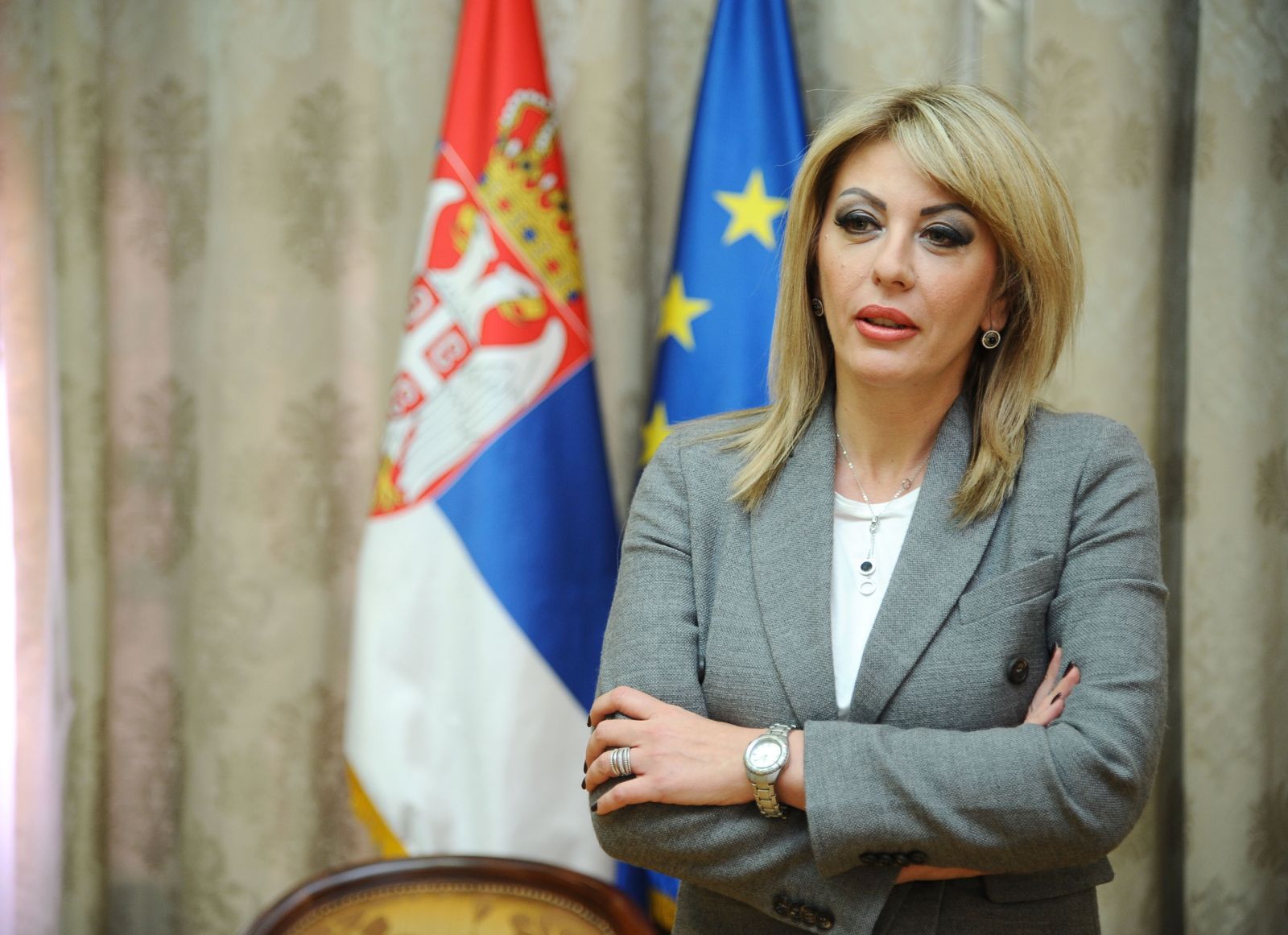
Chapter 35 was supposed to monitor the agreements reached with Pristina, although it has been proven time and again that Serbia adheres to them. Agreements either exist or they do not – they are not to be traded with or bargained for. The only way the EU can keep the integral invulnerability and indivisibility of the negotiation process with Serbia is to evacuate the monitoring of the Brussels Agreement from its negotiating platform for chapter 35.
This is what Minister of European Integration Jadranka Joksimović has stated in her interview for Novosti, commenting on the series of Pristina’s moves that have blocked the dialogue with Belgrade. She has reemphasised that Belgrade has implemented the agreements from Brussels, but that Pristina has not implemented the only and the most important agreement – the establishment of the Community of Serb Municipalities:
No justification for potential slowdown on the path to the Union
Finally, with the introduction of taxes, Pristina has halted the dialogue and, by adopting the platform, has declared that the Brussels Agreement does not exist for them. That is why it is unfeasible only for Belgrade to strive to maintain it through dedicated commitment to cooperation, while the EU and other international actors are struggling to drag the drowning wheels of the dialogue out of Pristina’s mud infested with confrontation. Since 2013, Serbia has consistently adhered to the principles of the European order of peace, having started from a positive assumption that the dialogue would lead to a sustainable necessary solution to the relations between Belgrade and Pristina.
Is it possible for Serbia to find itself in a paradoxical situation where, due to Pristina’s obstructions in the process of normalisation of relations, it would be punished by a suspension of negotiations with the EU?
- As a signatory of the Brussels Agreement, the EU can make a fundamental overview of the results, which will show that Belgrade has no unfulfilled obligations, therefore, according to the negotiation rules that include the fact that Pristina may not block Serbia on its European path, I do not see any valid justification for potential deceleration of Serbia’s process due to Pristina’s unilateral moves that also undermine the EU’s entire work within the dialogue. I believe that the common and mutually congruent interest of Serbia and the EU is the achievement of sustainable stability of the European order in our region.
When could we expect the opening of new negotiation chapters?
- We expect that the next intergovernmental conference will be held and new chapters opened by the end of June this year, after the completion of European elections and the publishing of annual progress report for Serbia. Bearing in mind the reforms that are being implemented in all areas, particularly in the area of the rule of law and economy, I expect the progress report to objectively present our results and to note concrete progress in meeting the EU membership criteria. Five chapters are technically prepared for opening – chapter 2 (Freedom of movement for workers), 4 (Free movement of capital), 9 (Financial services), 14 (Transport) and 21 (Trans-European networks); it is realistic to expect the opening of some new chapters, but I cannot promise how many.
How realistic is your expectation that the EU speak with one voice about enlargement, given the current situation in the Union?
- I expect that, following the European elections, the new composition and new mandates of institutions will renew the Union’s legitimacy with a clearly designated scenario of future development. Then the EU will have a single voice regarding all policies, not just the enlargement policy. It is indisputable that the EU is truly in a state of management overload due to unpredictable “brexiting”, which makes its management capacities vulnerable in terms of enlargement. The fact is that we often receive ambivalent messages from the EU, and these public tones of discordance can be interpreted as a lack of political will and result in confusion among citizens. It is our job to effectively meet the citizens’ expectations and prepare realistic plans. We have undertaken the obligation to fulfil membership criteria, while the EU has undertaken the obligation to implement a credible enlargement policy.
Is there still a unified position on the EU membership as a foreign policy priority within the Serbian Government?
- The foreign policy course of a country is not set on a day-to-day basis – it is defined by the programme and the platform of the Government which contains the Government’s strategic goals that have been accepted by everyone who is part of the Government and that we have presented to the citizens. Serbia daily addresses a series of internal issues that are sometimes burdensome and sometimes not entirely encouraging for the European integration process, but this does not mean that we have daily doubts about our strategic goal. The point of these matters is progress and better living and working conditions for our citizens, and the EU membership has proven to be the way to achieve it.
What is the perspective of membership by 2025?
- Regardless of the demanding technical work that must be done within the framework of negotiations, EU accession is primarily a political process that largely depends on Member States’ positions, as well as their perceptions. We do not see 2025 as a promise, but as an open possibility, and we will continue to implement reforms.
D. Milinković
Source: Večernje novosti







